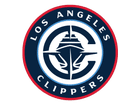
Andre Iguodala on Warriors fans: The Bay Area has an incredible fan base, but there’s also a portion that became entitled
Andre Iguodala: But people forget how hard it is to win. Everyone's asking about that dynasty, when will it die? It's like, how many dynasties have there been in sports, period? You look at basketball, there's been five, six, maybe? You have Boston, the Lakers have had two. Chicago, the Warriors. Spurs, too, although they never went back-to-back. But they are a dynasty. It's really rare to see, and sometimes you can take it for granted. We have a very affluent economic level of fan base. Silicon Valley, the Bay Area. The Bay Area, in general, they're great fan base. They always support the Warriors, even in bad times. And you saw another level of fans come from the Bay Area, and they got a little entitled, which is funny. But the effect that you've seen it have on a game of basketball, even how it's played, I think speaks volumes to Steph, Klay Thompson, their shooting ability, they just changed the game. I think you just got to appreciate it while it's still here because what Steph's doing at the level he's still doing it at, oh my. Just him doing what he did, people couldn't believe he was doing it. But for him to be able to do it at age 37?!
Fast-forward two years, and the uniform has changed, but not the end goal. Thierry Darlan, 21, is still playing and pursuing an NBA career, but now he’s doing so in college basketball at Santa Clara University, a Jesuit school in Silicon Valley. “To be honest, I never saw myself being back in school,” Darlan told The Athletic. “But the NBA is still the goal, that’s what I’m here for, trying to get more experience, trying to get better.”

Cline-Thomas, a 44-year-old native of Washington, DC, and son of immigrants from Sierra Leone, began his career working at a DC-area sports agency. He later built a reputation as an adviser to NBA players such as Golden State Warriors forward Andre Iguodala, helping them gain access to venture investments in Silicon Valley. More recently, he led a group of 15 people, including NBA and NFL players, who funded the development of a science research campus for Harvard University that includes offices, retail and housing in addition to labs. In 2021 he co-founded Mastry, which has bought stakes in companies including youth sports insurance startup Players Health and an electronic document exchange service called Crstl.

Golden State Warriors: Hey, speaking of quotes launching rumors, James wasn't even a little subtle in April when he said that Stephen Curry would be the player in today's league with whom he'd most want to play. The Bay Area isn't quite New York or Los Angeles, but it's still an extremely appealing market thanks to Silicon Valley. Golden State's ownership has hinted that it doesn't plan to pay for a half-billion dollar payroll in the near future, but perhaps they'd change their tune if it meant access to all of the ancillary revenue streams James creates. The Warriors may not have felt they needed James to compete for a fifth championship before the season. Their poor start could make them more aggressive.

Though the deal was actually inked last fall, it’s only now the general public has sussed out that NBA star Stephen “Steph” Curry quietly sold off his California “dream home,” a lavish residence in the affluent Silicon Valley enclave of Atherton. Records reveal the estate sold for $31.2 million, or only about $150,000 more than the Golden State Warriors point guard paid for the place a little over three years ago, back in June 2019.
Advertisement
Gordon and his mother, Shelly Davis Gordon, decided in 2019 to use her expertise from 35 years of working as a computer scientist and engineer in Silicon Valley to start CodeOrlando, an immersive STEM experience. The free four-week summer camp for eighth through 12th graders introduced the students from various Orlando, Florida, schools to coding, robotics and nanotechnology. The students are primarily of color from underserved backgrounds, the groups most underrepresented in science, technology, engineering and math fields. Over the years, the kids in the program have taken part in group projects, three-day internships and visited local colleges, tech development companies and organizations.
“We did a lot of stuff like holiday giveaways, Thanksgiving stuff, basketball camps in the summer, those types of things,” Davis Gordon said. “But Aaron and I have always talked about how we really wanted systemic change and we really wanted to do something that was more lasting than just a giveaway. We talked a lot about his love for technology and my experiences with it and how the college dropout rate for Black males is 60%. It’s no wonder that the pipeline for Black, Hispanic and women to get into technology and then to stay in technology, remains small. There’s just so many things that block people from being able to participate in it.”
Gordon said graduates of his program are not only working in the tech industry, but have come back to aid current CodeOrlando participants. Davis Gordon retired from working in Silicon Valley in September 2015 and took over as CEO of the Gordon Family Giving Foundation. She now works with CodeOrlando mentoring and keeping in touch with the current and past participants. “If you just don’t have anybody in your community that is in that world, you never see that world. It’s that old adage, ‘If you can’t see it, you can’t be it. If you can see it, you can be it.’ And I think that’s really true. So, we wanted to do something where we introduced kids to technology,” Davis Gordon said.

Cline-Thomas has made a name for himself as a go-between for professional athletes and venture capitalists in Silicon Valley. In the end he brought in 15 investors, including himself. Ten from his group are athletes—including Andre Drummond, Andre Iguodala, Kyle Lowry, and C.J. McCollum from the NBA and the NFL’s Trent Williams and Byron Jones. All told, working with Mastry and other intermediaries as well as Harvard’s alumni network, Tishman Speyer got $30.8 million of the $500 million equity offering from a group of 157 Black and Latino investors—exceeding its commitment by more than 20%. “There’s a range of investors, from professional athletes to doctors and lawyers,” Speyer says. “So it’s an eclectic group.”

The unnamed institutional buyers — who, according to sources, had the support of Silicon Valley tycoon Chamath Palihapitiya, a minority owner in the Warriors — were confident the NBA would OK them to buy the stake, sources said. But the NBA’s Advisory/Finance Committee put off a decision and the Warriors withdrew the request, figuring it was dead, according to three people with knowledge of the matter.
Advertisement

“Utah’s given me everything. We were told we couldn’t build a tech company out of Utah, that we had to go to Silicon Valley. When I was taking venture capital in 2011, half the venture capitalists wanted us to move out of Utah. We’ve shown that we can win in Utah. That’s pretty exciting.”
Sam Hinkie, best known to NBA fans for helping the Philadelphia 76ers tank their way back into contention, has raised $50 million for a Silicon Valley venture capital firm called Eighty-Seven Capital. He tells Axios to expect seed and early-stage investments, but not with a sports focus.
In some ways this conference is where Silicon Valley meets sports. In the actual Silicon Valley on Thursday, the county government took a bold step, recommending some sweeping measures, including: The reason this matters: Two sources say that this Santa Clara announcement was one of many that the NBA league office emailed this morning to all 30 NBA teams, as part of its ongoing internal communications about coronavirus. What do teams make of these communications? Should we expect cancelled games? Or games played in front of empty arenas?

The title bump may have looked ordinary, but it is a highly visible marker of a growing trend — as Silicon Valley types have flooded NBA ownership ranks, front offices have adopted their ranking hierarchy with no consistency among organizations. A handful of positions are a major departure for the sport: The Oklahoma City Thunder, for instance, has vice presidents of “insight & foresight” and “identification & intelligence,” while former sportswriter Lee Jenkins serves as the Los Angeles Clippers’ “executive director of research and identity.”